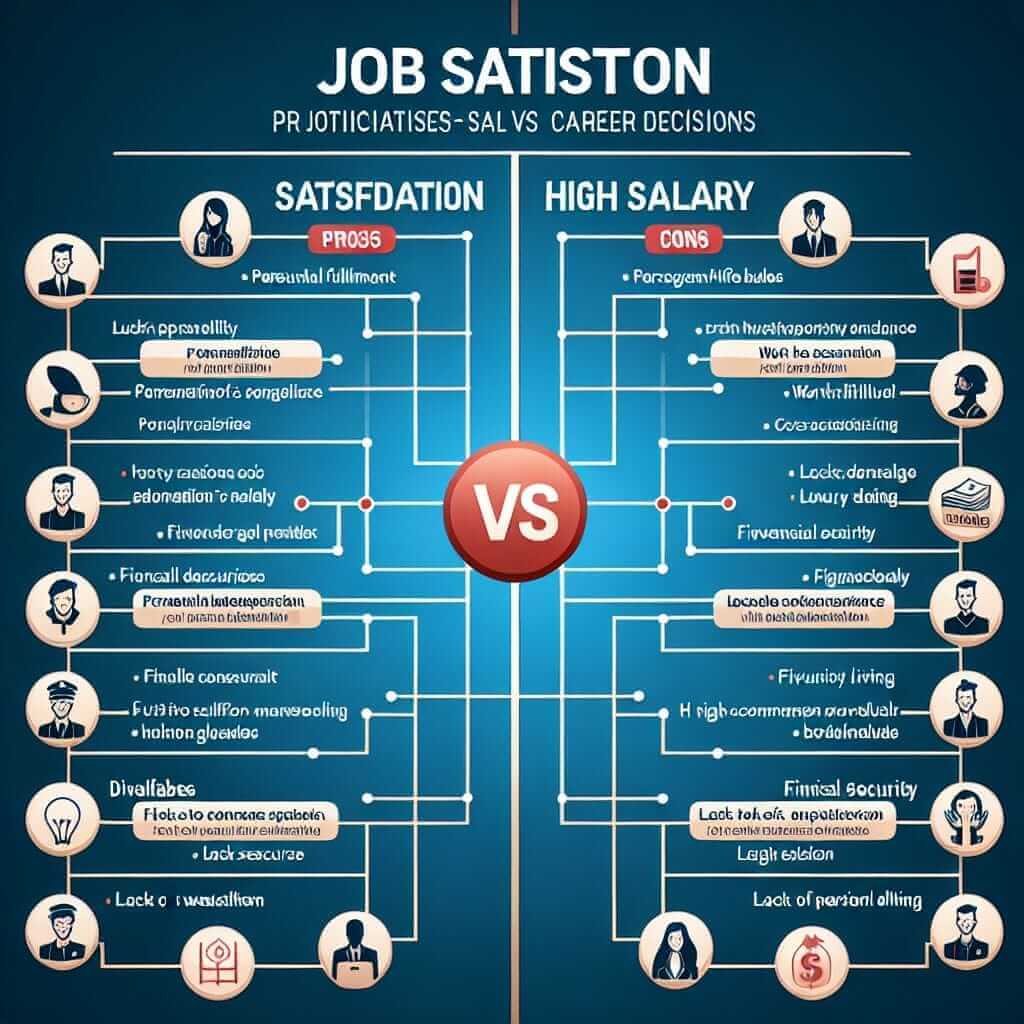The age-old debate of “job satisfaction vs. salary” is a frequent visitor in IELTS Writing Task 2. This topic explores the dilemmas individuals face when choosing careers – prioritizing financial gain or personal fulfillment. This essay will delve into a realistic IELTS task 2 question about this topic, provide a band-high sample answer, and offer valuable insights into vocabulary and grammar to help you excel in your IELTS writing.
Nội dung bài viết
IELTS Writing Task 2 Sample Question
Let’s analyze a question that mirrors the style and difficulty of real IELTS exams:
Some people believe that job satisfaction is more important than a high salary when choosing a job. Others, however, think that a high salary is more crucial. Discuss both views and give your own opinion.
Analyzing the Question
This question presents a classic “discuss both views and give your opinion” structure. It requires you to:
- Present both sides: Acknowledge the arguments for prioritizing job satisfaction and those favoring a high salary.
- State your opinion: Clearly express your stance on whether job satisfaction or a high salary is more important.
- Provide balanced support: Offer well-reasoned arguments and examples to support your viewpoint while acknowledging the opposing side.
Model Answer
The decision about whether to prioritize job satisfaction or a high salary when choosing a career path is a complex one, with valid arguments on both sides. While some individuals believe that personal fulfillment outweighs financial gain, others prioritize financial security and the opportunities it brings.
Proponents of job satisfaction argue that true happiness stems from finding meaning and purpose in one’s work. They contend that engaging in a profession that aligns with one’s passions and values leads to increased motivation, creativity, and overall well-being. For instance, a teacher who is deeply passionate about education might find immense satisfaction in nurturing young minds, even if the salary is not as high as in other professions.
However, others emphasize the importance of a high salary, arguing that financial stability is a cornerstone of a comfortable life. They reason that a higher income provides greater financial security, allowing individuals to meet their basic needs, pursue their hobbies, and secure a better future for themselves and their families. A high-paying job can also offer more significant opportunities for career advancement and personal growth.
In my view, while a good salary is undeniably important, job satisfaction ultimately holds greater weight. A fulfilling career that aligns with one’s values and interests can lead to greater happiness and a sense of purpose, which money cannot buy. Moreover, job satisfaction often translates into increased productivity and motivation, potentially leading to career progression and higher earning potential in the long run.
In conclusion, while the choice between job satisfaction and a high salary is personal, I believe that prioritizing personal fulfillment and finding a career that sparks joy and meaning is essential for a truly fulfilling life.
(Word count: 278 words)
Writing Tips
- Structure: Follow a clear structure – introduction, body paragraphs (presenting both sides and your opinion), and a conclusion.
- Vocabulary: Use a range of vocabulary related to work, such as “career path,” “financial security,” “personal fulfillment,” “job satisfaction,” and “career progression.”
- Grammar: Demonstrate accuracy in complex sentence structures, verb tenses, and articles.
- Examples: Include relevant examples to support your arguments.
Key Vocabulary
- Intrinsic Rewards (noun) /ɪnˈtrɪnzɪk rɪˈwɔːrdz/: Non-monetary rewards derived from the work itself, such as a sense of achievement or personal growth.
- Extrinsic Motivation (noun) /ˌɛkˈstrɪnzɪk ˌmoʊtɪˈveɪʃən/: Motivation driven by external factors like salary, bonuses, or recognition.
- Work-Life Balance (noun) /wɜːrk laɪf ˈbæləns/: The balance between one’s professional and personal life.
- Burnout (noun) /ˈbɜːrnaʊt/: A state of emotional, physical, and mental exhaustion caused by prolonged exposure to overwhelming stressors.
- Career Ladder (noun) /kəˈrɪr ˈlædər/: The progression of jobs within an organization or field, from entry-level to higher positions.

Conclusion
The “job satisfaction vs. salary” debate is multifaceted, and mastering this topic can significantly enhance your IELTS writing score. Remember to present balanced arguments, express your opinion clearly, and support your ideas with relevant vocabulary and examples.
For further practice, consider these related IELTS writing prompts:
- Some people believe that individuals should pursue their passions, even if it means sacrificing financial stability. Others argue that financial security should be the top priority. Discuss both views and give your opinion.
- In today’s competitive job market, is it more important for individuals to prioritize work-life balance or career advancement?